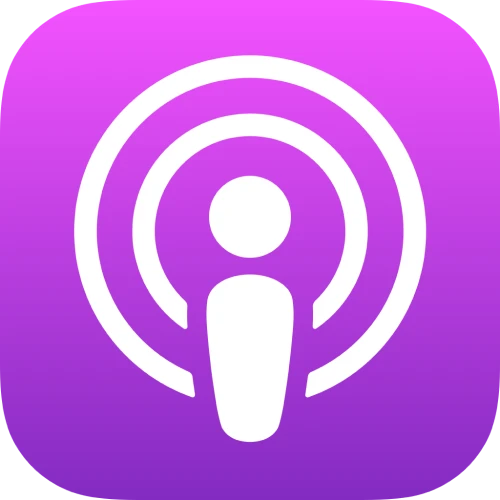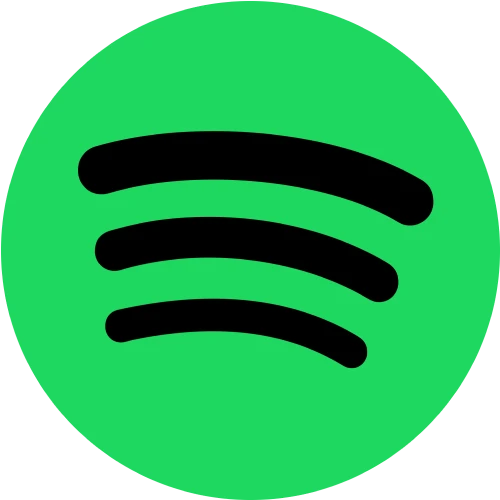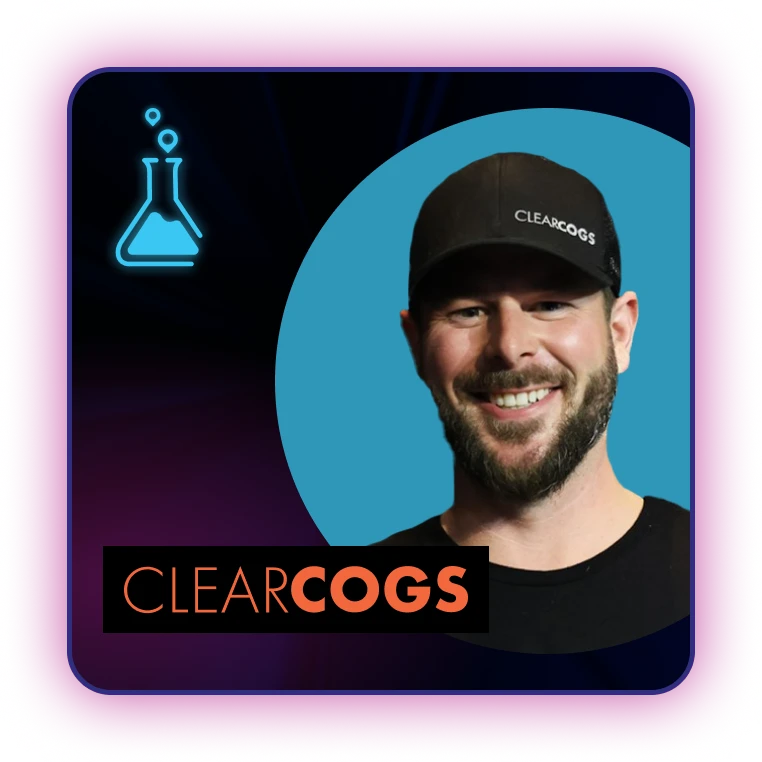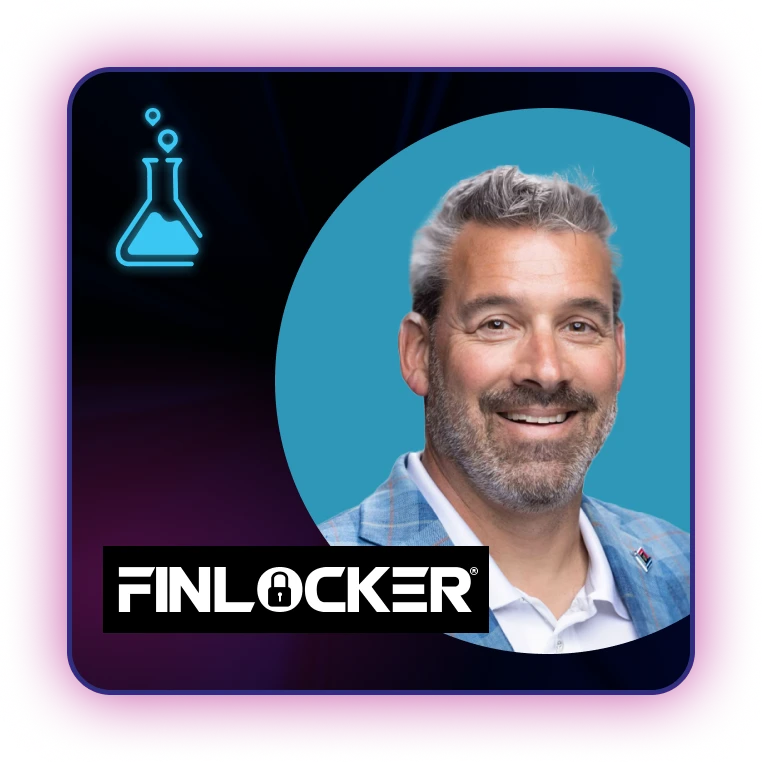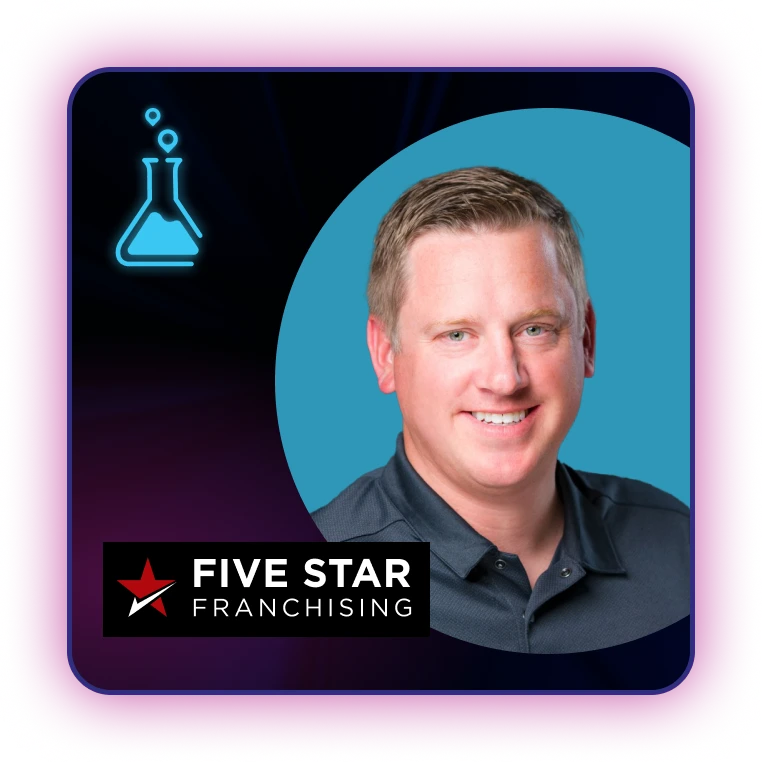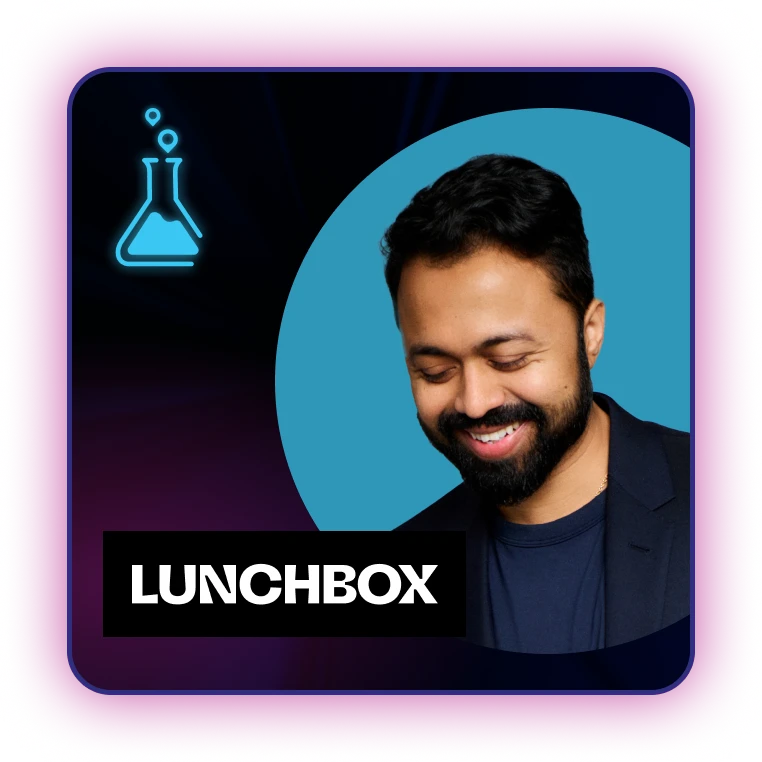< All episodes

September 20, 2023
Create raving fans in your local community
with Scot Turner
Founder & Managing Director at Auden Hospitality
Summary
Scot Turner, the Chief Ambassador at The Burnt Chef Project and the founder of Auden Hospitality, joins this week’s episode of The Local Marketing Lab. Scot draws from his 20 years of experience in the food and beverage industry within the hotel space to share insights on local marketing strategies to create raving fans in your local community.
One of the key takeaways from this conversation is the importance of tailoring marketing strategies to each individual outlet within a hotel or restaurant. He emphasizes the need for a personalized approach, understanding the unique needs and preferences of each customer segment, and avoiding a one-size-fits-all approach.
Scot highlights the significance of creating raving fans in your local community and nurturing loyal customers who repeatedly choose the brand. He also discusses the potential challenges of impact marketing and suggests focusing on strengthening the foundation with a solid base of repeat guests and loyal followers. Additionally, he shares valuable tips on utilizing LinkedIn for B2B marketing and personalizing the experience for potential customers.
Key Takeaways
In this episode, you’ll learn:
- Why tailoring marketing strategies to specific locations can revolutionize your outreach.
- The art of building and maintaining loyal fans in your local community.
- The potential of LinkedIn in your B2B marketing endeavors.
- Tips for using TikTok in personal branding and boosting audience interaction.
- How to take user-created content in your local marketing campaigns.
And they become your biggest marketeers because they’re the ones who are talking about you more than you can possibly talk about yourself on social media, Instagram, TikTok or whatever. It all kind of feeds into one another.
SCOT TURNER

Resources
- Follow Scot Turner on LinkedIn or TikTok.
- Learn more about Auden Hospitality and how they help food and beverage entrepreneurs succeed.
- Check out The Burnt Chef Project — a community to burn away the stigma surrounding mental health within hospitality.
Other shout-outs
- Chick-Fil-A for being an amazing example of creating fans in your local community.
- Zack Oates from Ovation: check out his webinar “Leveraging the power of a local growth flywheel“.
- Shawn Walchef: Follow him on LinkedIn and watch his recent podcast episode.
- Follow Troy Hooper on LinkedIn.
- Consider following Rev Ciancio on LinkedIn.
- If you’re in Belgravia, Covent Garden, or even Riyadh, stop by Chestnut Bakery.
- Follow all the great content of Dominique Ansel.
Transcript
Justin Ulrich
So nervous for this one. I’m joking.
What’s up everyone, and welcome to the Local Marketing Lab, where you get real-world insights from industry pros to help you drive local revenue and local for growth. This podcast is brought to you by Evocalize – digital marketing tools powered by local data that automatically work where and when your locations need it most. Learn more at evocalize.com.
What’s up, everyone, and welcome to the Local Marketing Lab. Joining us today in the lab, we’ve got a great guest with 20 years of food and beverage experience within the hotel space across 14 countries in Europe, the Americas, and the Middle East. He’s the Chief Ambassador at the Burnt Chef Project and the founder of Auden Hospitality. Scott with one T, Turner. Thanks for joining us in the lab.
Scot Turner
Hi, Justin. Really good to be here. Thanks for having me on the show.
Justin Ulrich
You bet. Hey, Scott, I thought it would be good to kind of kick things off with you telling us a little bit more about your background and what keeps you busy.
Scot Turner
Yeah, for sure. So my career, 15 years in hotels, working in luxury hotels, got to hotel manager and realized that hotels and being a hotel GM wasn’t what I wanted to do anymore because I just had a passion for food and beverage. And it got to a point where I was starting to move further away from F&B than I was kind of being in F&B. So I decided to move into independent restaurants and go do something different.
And not only did I move into independent restaurants, but I moved country to go and do it as well. So I moved to the Middle East, went to go live and work in Dubai for five years, working in independent restaurants, people like Alain Ducasse, people like China Grill Management, Asia de Cuba. And that was when we started kind of working across the Middle East as well.
So, Saudi Arabia, Kuwait, Qatar, Bahrain. So, yeah, pretty much seen it all when it comes to over there. Worked for the business I was in, which was an investment company for seven years. We took incubator brands, so brands that maybe had two or three locations, founder-run businesses. We came in and we gave CapEx over as investment.
And then I was responsible with the operations team of coming in and helping these guys get to a point where they could scale successfully. And then we helped them roll it out across four operating platforms that we operated in, which was London, Saudi Arabia, QA, and New York. And we had 16 brands, 85 locations.
And in 2022, right at the start of 2022, I decided I’d kind of had it all with corporate life, hotel life, and wanted to do something of my own where I could dictate the impact that I was having on businesses. And that’s when I set up Auden Hospitality.
So I always say that 15 years in hotels got my education, went off to go see the world. And I’ve come back now to work with hoteliers to help them improve their F&B performance by bringing that restaurante mindset, which is really different than how you operate in hotels. Bring that to hotels so that they can start really seeing F&B as a profit center and as something that adds real value to the hotel.
Instead of just being a service operation or a service function for in-house guests who want breakfast and they might want a little snack in room service or something like that and really starting to think differently.
And then as part of that natural evolvement is we work with founders as well. So founders who are in scale up mode, and we come and bring our experience of process operations, analytics, and we help them open successfully and then afterwards we continue advising with them and we help give them the skills and the tools to be able to grow successfully as well.
So, yeah, we work with clients in Europe, clients in the US. We’re based out of London in the UK, yeah, we’ve got really exciting projects on our hands at the minute.
Justin Ulrich
Very cool. Yeah. One thing that kind of stuck out as you were going through that is you talk a little bit about the challenges within the hotel space in F&B are a little bit different than if you’re just running just a standalone restaurant. Given you’ve got conference, you’ve got room service and various other kind of dining experiences within the facility. Given those unique challenges, what do you feel is the most important aspect of local marketing?
Scot Turner
Yeah, I mean, it’s really about taking each area as its own individual outlet. That’s my big advice. And it’s not a one size fits all for your hotel or your operation because everyone has its own target market.
So if you think about strategy and think about it on a blanket perspective, you’re not going to optimize each individual area because you’re not going to be talking to the right people. So everyone always talks about having a niche when it comes to starting a business and having a message around what you do.
And that’s no different when you start breaking that down into F&B outlets. So whether that’s conferences, whether that’s restaurants, bars, because the guy who goes in your restaurant isn’t the same person as the person who books the meeting room.
So yes, you want everyone to go everywhere, but the messages that go to the individual people are very different. So it’s really important to get a really defined strategy for each area.
But I think when it comes to local marketing, certainly for restaurant, for the bar, for the meeting rooms, for lounges where you might have afternoon tea or that type of thing, I think the principles are always the same, aren’t they, when it comes to local marketing?
And I always revert back to Chick-fil-A. And we spent a lot of time studying these guys when we were in scale-up mode with the investment company. And what they do really well is they build their product around raving fans, and it’s all designed around getting people super loyal, super engaged with the brand so that they don’t think of going anywhere else.
And how many people go to Chick-fil-A every Friday night after soccer club, because that’s just the habit that they’re in, and that’s what they do. And they continue that through all the know as children and then into adults with their kids.
So I think about those raving fans. Think about the people who can become that. And I always encourage people to start with the local community. Look at the people who are closest to your hotel, because they’re the people who can turn coming into your hotel or your restaurant.
As you know, we opened a bakery in London, which was in quite a residential part of central London called Belgravia, straight out of COVID. And we were going into a marketplace that was saturated in terms of coffee shops. There were some bakeries in there, there was fast-casual concepts in there. And we took a lot of opportunity out of the fact that COVID broke people’s habits on a day-to-day basis.
And we set out with a mission of going, “How can we engage the community as much as possible so that when people start coming back into London, people start coming back out of their houses?” Whether, new habit on the block, whether new place to go.
So I’d really encourage anyone who listens to this to look at how you can create habits from people coming to your business. Because I think I saw a stat once that returning guests spent 67% more than first-time guests, and then they bring people back again and again, and they recommend you as well.
So not only is it cheaper to retain than it is to acquire, they also spend more when they come to your business as well. So it’s really important to really focus on that community piece and acquire them once and retain them long term, because it’s always the best ROI that you can get from it.
So that’s really my example of how I think people should look at local marketing, whether it’s a hotel or not, a hotel or a restaurant or any business, really. It’s how do you nail that area around where you are and then from there, how do you start building outwards from that as well.
Justin Ulrich
Exactly. We did a webinar a couple of months ago with Zach Oates on, and we’re talking about a growth flywheel. And basically you spend all the money from a marketing standpoint to bring people into your location. It’s like, why wouldn’t you want to?
It’s the cheapest folks to go after if you just continue to market to them and create a solid customer experience, develop loyalty, keep them coming back. Like you said, it’s the best ROI you can get on your dollar spent, as opposed to just trying to constantly bring in new folks that aren’t going to come back.
Scot Turner
And we found, it’s funny when we did the bakery. What we found from that as well is because we were starting to build a really nice foundation of repeat guests and loyal following.
When we came to then doing ad spend, or we came to doing paid marketing, or we started engaging with social media companies, PR companies, we could be a little bit more descriptive with what we were asking, and we could become a little bit more precious around what we were seeing in terms of results, because we already had a base there that was bringing in solid revenue.
So we weren’t making snap decisions based on impact because it’s one of the big things that I see quite often with, especially in the current climate and the current market, is what I call impact marketing. Impact marketing, you go out, you try and hit people with big offers or promotions or heaven forbid, discounts, that creates impact in terms of revenue from a long-term sustainable growth perspective.
As soon as that discount drops or that promotion ends, the revenue drops again and you almost feel obliged to go there again. And you get into this really difficult cycle of paying your way out of trouble every time because that’s the only thing that you see with results. Because when you do impact marketing, you fill a restaurant, you fill a venue with people.
If you can’t handle that from a staffing perspective or from a volume perspective, and you start upsetting the regular guests, those guys vote with the fee and leave. So all of a sudden you lose your foundation and that foundation disappears. So you’re back to doing impact marketing to try and pave the way and it just becomes a really difficult cycle of how to get through.
And I think it’s really important to treat the locals as your base and your foundation because it helps every other decision because you know you’ve got a solid base sitting there from a revenue perspective.
Justin Ulrich
Yeah, that totally makes sense. When you talk about engaging locals, what are some things because there are other units out there that are really struggling right now to drive growth at a local level. So what are some things that you’d suggest that they could do today or try this week to try to engage with their local base?
Scot Turner
Yeah, the number one thing I would suggest, and it’s funny, we did this in a five-star hotel in the center of London last week. We got a map of the area on Google and we went on, I can’t remember the site, but we went on and we found a radius and we put in a 1 km radius. We put in a 1 km radius.
And then we looked at all the big businesses and offices around that 1 km radius. And then we looked at how we could develop a B2B strategy on LinkedIn, that we could then target those people and start inviting them into the restaurant and start inviting the PAs and that type of thing in as well.
And the basis on that is we nail the 1 km, then we go to 2 km, then 3 km. Once we’ve done that, then we can start looking at regional press, local press, and how we start talking to people further afield. But for now, it’s very much focused on how do we fill lunch, how do we fill lunch with business people and those business people, which offices are the working in and doing it?
And it’s the same for me. Think big, start small. That would be the analogy I would use. So don’t underestimate the value of what’s sitting in an office somewhere locally to you, because those guys spend cash. And back to that point again, if you become the habit that every time they need to go for a business lunch, it’s easy to go to you because you recognize them, you personalize their experience, you look after them like the VIPs.
So whenever they bring a business deal, they know they’re going to get looked after. Well, it makes a huge difference to what happens then in terms of the base that you build in the restaurant.
And a lot of restauranteurs, a lot of hoteliers ignore the power of LinkedIn. But we met on LinkedIn. My strategy for my business is LinkedIn because it’s the way you can talk directly to people who are engaged in building their business. Because you’re only on it if you want to build your career, your business, your performance.
And I think restauranteurs ignore it because it’s not seen as the cool kid on the block. But there’s so much value sitting there on LinkedIn, and how many times do you get DMs on cold calls for email lists? And that’s SEO keyword people LinkedIn.
So if you’re the only restaurant who’s then doing an email going, come and see my restaurant. And by the way, when you do, why do you have a free drink on me? How refreshing is that going to stand out in someone’s DMs? And the power of that could be quite huge.
So we just started doing that last week as a strategy. And, yeah, we should start seeing the results kind of this week, next week. But this is what you can do tomorrow that costs you no money. So if you don’t have anything to spend on marketing, it’s not going to stop you. Because you have a LinkedIn account, everyone’s open to message and you don’t need anything to offer a few drinks to people to get them through the door.
Justin Ulrich
That’s true. That’s a very good piece of advice you talk a little bit about. Think big, start small. It’s the same thing that we say, like in the marketing world we always talk about crawl, walk, run, test, different things. Try to figure out what works well before you go all in. Because then once you find the key learning and then scale from there, then you know, at least you have a winning solution that you can go after.
As opposed to a lot of organizations, they kind of fear, know, spending on different initiatives because they feel like they have to do it all at once and it’s going to be so expensive, but it’s like, just try it, try a little something and see if that works. Go from there.
One thing that Shawn Walchef mentioned in the past too was about just frequency. Try as many things as possible as soon as you can because then you can accelerate your learnings and kind of fall into what’s actually most engaging for your clients and then take that win and go from there.
Scot Turner
Yeah. And it’s funny, I’ve spoke to Shawn a lot about this. And when I first started talking to Shawn, it was when my own content on LinkedIn, I felt like it was getting a bit same same and it was all in written form and I wanted to diverse a little bit.
And one of the great things about LinkedIn is that people are really available and people will just do a half-hour call, will share knowledge. If you don’t optimize that and maximize that, then you’re doing something wrong.
But he was talking about video and different bits and pieces and back to that point, I tested a little bit on LinkedIn. It went okay. My kind of impressions didn’t go up or down or otherwise. I was kind of playing with Twitter or X at the same time. Wasn’t really getting much traction and thinking, okay, well, maybe I should just keep focusing on LinkedIn.
And I spoke to Shawn and he was like, stop doing it under your business. Develop your personal brand, because your personal brand will then affect the business long term anyway. Because you’ll talk about it, you’ll keep referring to it, you’ll keep saying about what you do, you’ll use it as case studies. So develop the personal brand because people buy into people a lot more than they do buying into brands.
And it really got me thinking on that one. So we went from there and we’re in the process now of doing the same thing with one of our ops directors in one part of the business and saying to it, develop your personal brand. Because if there’s me talking, there’s other people from the business talking, then it’s going to have much more effect than kind of going out there as me and the business and then trying to get an audience that way.
So again, allow your people to be active on LinkedIn. Allow your people to be active on social. Because all the businesses that I’ve built around people have always been the ones that are the most successful.
And why restaurants from celebrity chefs so successful? Because they have a personal brand that goes in front of people on the TV and it reflects back on the restaurants that they operate afterwards as well. It’s not because they go there with the restaurant and go, I’m X Restaurant and I’m the chef. They’re going there going, I’m the chef, and I also have X Restaurant. And if you like what you see, come and eat in my restaurant.
So I think this one thing that I’ve really learned over the last year is allow people to express themselves. Allow people to show how engaged they are in your business. Let people tell stories with a genuine, authentic purpose behind it, and the people who are seeing it will start buying into it a lot more because they see that it’s real life and they see that it’s not something that’s been powder, coated or filtered for social media.
And if I spoke to you and I spoke to Shawn, I’d have gone, okay. I think Instagram is going to be quite strong for me. I think it’s where people will go and validate and actually, it’s TikTok. And I would never have thought that in a million years, because I go on TikTok and I talk about business and I talk about how to run restaurants.
But from a follower to impressions perspective, TikTok is far stronger than any other platform, including LinkedIn. So short form, video first, looking authentic, making a few mistakes. When you’re talking, people buy into it, people accept it.
So when it’s happening with people who are trying to build personal brands, how can you transfer that into your business? Because it’s going to have the same effects for that as yeah, it’s really interesting how the two I found the two can be quite connected.
Justin Ulrich
Yeah, I hear a lot of great things about TikTok. A lot of success is seen on there. You know, Troy Hooper was on talking about how that’s where they get a ton of their success. You know, I’ve heard seen a couple sessions with Rev talking about TikTok and the importance of it.
It’s vital to the business and the restaurant space when you get users on there creating videos that are two, three minutes long about their experience and showing with Troy’s example, specifically showing them prepping the food. And it’s an entire experience that you otherwise wouldn’t realize that you’re getting. If you just drive by the location and see the sign, but you can kind of internalize it from TikTok, then I want to go in. You’ve got me as a customer.
Scot Turner
Yeah, it’s that authenticity, isn’t it? And it’s funny. And I listened to the show with Troy, and it got me thinking when he was talking about user generated content, because when we back to opening the bakery in Belgravia, we had a strategy around whenever someone logged onto Instagram, they saw an Insta story from us, as the bakery, Chestnut Bakery is called.
And that meant between 15 to 20 times a day, we would encourage user-generated content so that we could repost it. And then we wanted people to come to go “Every time we switch on Instagram, we always see you guys.”
So we developed our product, we developed our service, we developed strategy of marketing around how do we get people to take as many photos and videos as possible. So we put big activations outside the front of the store.
So the first thing they did was took a picture of the front of the store. Then when we were inside, we had all the pastry items there. We really focused on how they looked so that they were photogenic or video-genic. We had a big clay oven in the kitchen that had huge fire in the background because people love fire, and they then take a picture of that.
And then a lot of people see people baking bread. What they don’t see people making is croissants. So we put a laminating room downstairs in the middle of the seating area so that when people were sitting there eating the croissant, they could see the baker rolling the croissants and shaping them and that type of thing.
And the amount of content we got from it was unbelievable. And it just all paid into this strategy of be authentic, show who we are, and get as much content as possible.
And back to that point around local marketing. That’s where you need your people coming in every single day. Who’s going to make it a habit going back here again? Here I am again. What great service. And they become your biggest marketeers because they’re the ones who are talking about you more than you can possibly talk about yourself on social media, Instagram, TikTok or whatever.
It all kind of feeds into one another. And I think local marketing is a fascinating subject because it really is the one that can set solid foundations for your business to be able to grow.
Justin Ulrich
Exactly. Growth happens at the local level. No matter what industry you’re in, that’s where it happens. Can you do me a favor real quick, Scot, can you say “croissants” again?
Scot Turner
Croissant.
Justin Ulrich
Oh, my goodness.
Scot Turner
Saying it under pressure.
Justin Ulrich
Yeah, see, that’s authenticity. You said it the same way five different times. If I would have tried that, you would have known, “No, this guy’s from New York.” Not calling it “croissants”.
Scot Turner
I said croissant for about four years. So before we did the bakery, we had Dominique Ansel Bakery as well. So, yeah, the cronut and everything was a big part of what we did.
Justin Ulrich
Yeah, cronuts are one of my favorites. So, Scott, we talk a lot. You give a lot of really good examples. Who would you like to give a shout out? Who’s doing something that you think is impressive from a local marketing standpoint?
Scot Turner
It’s someone who I’ve worked with before, and I’d encourage anyone to look at is Dominique Ansel. He does local marketing on a national scale, and he’s really clever at what he does.
You know, when we worked with Dominique, he was very passionate about making sure that you looked after the lines, that there was always something new for people. We were constantly evolving everything around the cronut flavors, releasing them once a month, the way that the content was done on it.
Pie night. I remember the first time we talked about doing pie nights. Who’s going to pay? I think it was like $50, $60 to eat some pie, and we sold out within about two minutes. And I was just like, okay, fair enough. What do I know about restaurants?
But that’s all built from the fact of he had the cronut. And what he did incredibly well was made a phenomenon out of it. And he started local in the little bakery. And when the lines are going around the block, he’s always out there talking. They’re always doing something online.
We always took out Cookie Shots and that type of thing. And the way he does his social media, he’s very good like that. He shows personality. He shows him as a person. He shows his team as people.
I love what he’s done now, bringing his baby boy in there and showing you how this baby boy has developed a taste for cronuts and sweet treats and things. I watched Instagram of him the other day, and he was at Caesar’s Palace, and they’ve got this new robot that does Cookie Shots now.
So he’s constantly evolving. He’s constantly looking at how to innovate. And I had the pleasure to work with him for a couple of years, and I think he’s a really good example of people who use social media to really drive their business and really focus on people at the store.
Justin Ulrich
Very cool. No, that is a great shout-out. We’ll make sure to tag him in the details of this episode so that folks can check out what he’s doing as well.
So Scot, one of the things that I learned actually a couple things I learned about you is that you’re a huge soccer fan. You’re obsessed with Leeds United, based out of West Yorkshire. You made it to state level championships playing tennis, but the most interesting thing is that you shot archery with Robin Hood himself, Russell Crowe.
Scot Turner
Yeah, yeah. It was funny when we had a laugh, didn’t we, earlier? Because you sent me know, have you got some interesting facts? And then you started chasing me, and I was like, well, actually, I realized I am not that interesting, actually.
But when I was under pressure to deliver, I was like, oh, yeah, okay, let’s go with that. No, no, it’s funny, actually. So I worked for the Dorchester Collection, and we looked after Russell Crowe for about three months when he was filming Les Misérables in London. We actually met him in the Beverly, first of all in the Beverly Hills Hotel. And he’s a Leeds fan as well. His wife’s from just around the corner from where I live, which was really random.
So he kind of took to me at the point. And it, you know, public holiday, bank holiday here and we have the long weekend and the hotel was full. We always used to put on activities for the guests and one of the activities was archery and he was walking through the hotel grounds with his, I think it was his trainer or something like that, and he saw the archery and he was trying to egg on his trainer going, come on, I’ll do a bet. Let’s see who can get the center of the archery.
And his trainer was like, no, I’m not doing it. I’m not losing to you again, I’m not giving you any more cash. And you know when you’re in one of those moments where you think, you know what, this is a once in a lifetime opportunity to do archery with Robin Hood. And I said, I’ll bet you 100 quid that I can beat you and get closer to the center than you can. So the bet was on, I lost, I paid him. And yeah, for my hundred quid, I can tell everyone that I shot a couple of bows with Robin Hood. Which is pretty cool.
Justin Ulrich
Very cool.
Scot Turner
When you put me under pressure, I delivered.
Justin Ulrich
You delivered, that’s right. So they call you Clutch. So for everyone else to be able to share that same memory with Scot, maybe a little bit more differently, we created this image for you. It’s you sitting with Russell Crowe in the background as Robin Hood, just showing off your skills and those golden locks.
Scot Turner
Yeah, look at that. I wish I had that hair now, I tell you.
Justin Ulrich
Well, awesome. Hey Scott, it was great meeting with you today. Before we head out, if you wouldn’t mind, just let us know how we can follow you, your personal brand or your company.
Scot Turner
Yeah, absolutely. So, yeah, hit me up on LinkedIn, Scot Turner. Scott with one T and I’m on there TikTok scot_auden. And then Auden Hospitality, we’re on most channels as well, but yeah, hit me up on the personal LinkedIn one. It’s where I post the most often as well.
Justin Ulrich
Very cool. Yeah, I would know. Follow Scott. He’s got some awesome content, tons of great stuff, daily tips, he’s got videos, he’s always on podcast episodes, just great messages. Solid ideas that you can leverage for your business. Thanks again, Scott, for joining us today. It was awesome having you in the lab.
Scot Turner
Thanks Justin, appreciate it.
Justin Ulrich
As always, thanks for joining us in the local marketing lab. This podcast was sponsored by Evocalize. To learn more about how Evocalize can help you grow your business, visit evocalize.com.
If you learned something from today’s episode, don’t forget to subscribe on your favorite podcast platform and follow us on LinkedIn and Facebook at evocalize. That’s Evocalize and on X at Evocalize.
And remember, keep innovating and testing new things. You’ll never know what connects with your customers best unless you try. Until next time. Thanks for listening.

Scot Turner
Founder & Managing Director at Auden Hospitality
Meet Scot Turner
Presenting our guest, Scot Turner, a hospitality expert whose passion and experience in the food and beverage industry have taken him across 14 countries over the past 20 years. He has a unique blend of hotel management and restaurant business expertise that gives him a holistic view of the culinary landscape.
As the founder of Auden Hospitality and the chief ambassador at The Burnt Chef Project, his key focus has always been on cultivating local community relationships and fostering customer loyalty, ultimately leading to higher revenues and sustainable growth.

Justin Ulrich
VP of Marketing at Evocalize
Meet the host
Justin is a seasoned marketing leader known for his creative expertise and innovative go-to-market strategies. With vast experience spanning both B2B and B2C landscapes, Justin has made his mark across a spectrum of industries including software, POS, restaurant, real estate, franchise, home services, telecom, and more.
Justin’s career is steeped in transformative strategies and impactful initiatives. With specialties ranging from channel marketing and brand management to demand generation, his strategic vision and execution have consistently translated into tangible results.
Empower your franchisees.
Drive real local results.
Not every franchisee on your team is a marketing pro — yet.
Let’s change that. Reach out, and we’ll show you how!

